


Committed to Sustainable Cities and Human Settlements for All

In Special Consultative Status with ECOSOC
(July 10,
2020) Covid-19 rages across the world, plunging humanity into an abyss of misery, causing the society total lockdown and
throwing the global economy into turmoil, and is considered as a once-in-a-century
public health crisis and ecological security crisis. The international
community must take decisive action to meet the challenges, promote a full and
inclusive economic and social recovery, and accelerate an aggressive
transformation towards sustainable development.
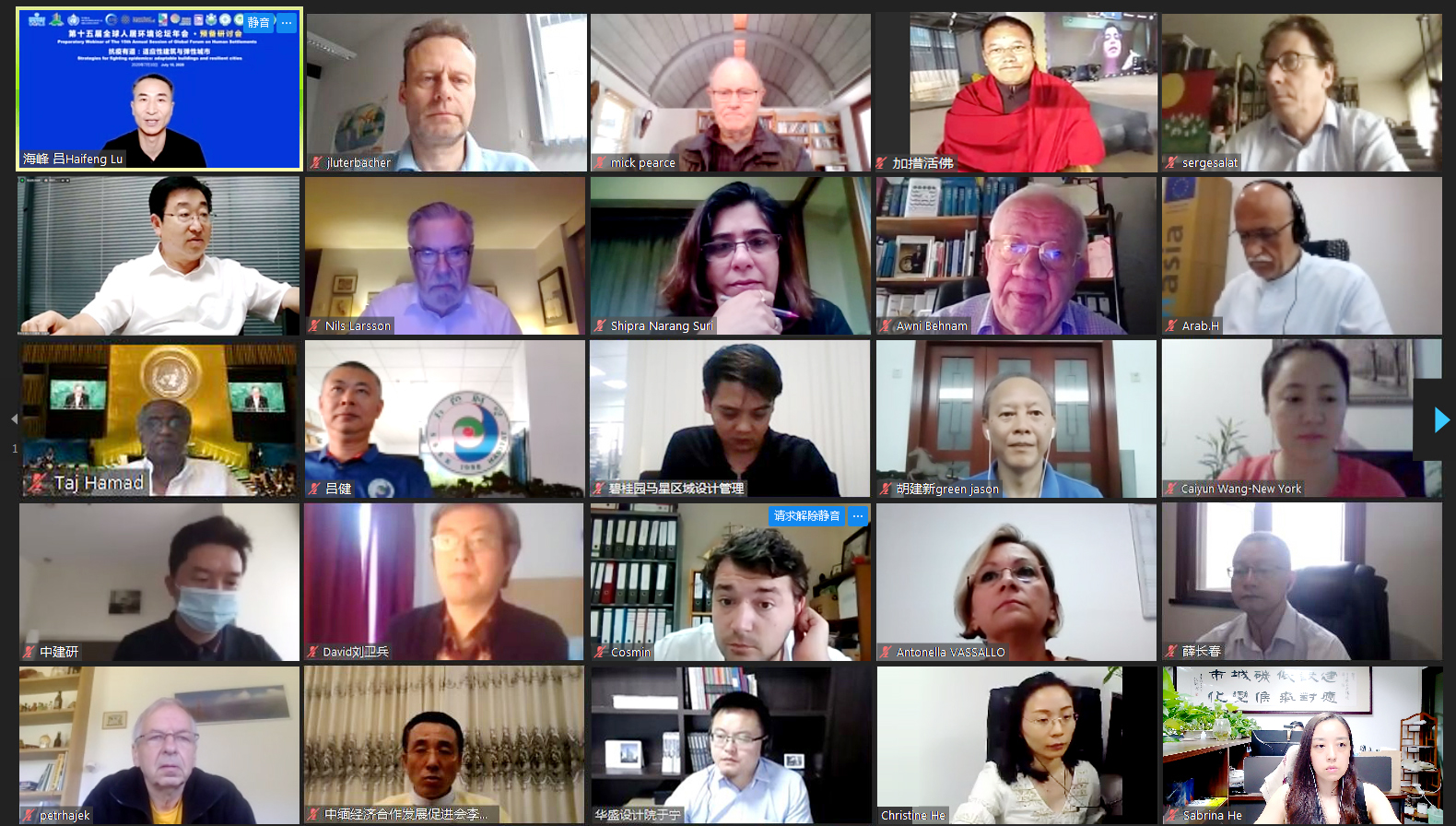
Against this background, the first preparatory webinar of the 15th Annual Session of Global Forum on Human Settlements (GFHS 2020) was successfully held on the afternoon of July 10, which provided an in-depth dialogue on "Strategies for fighting epidemics: adaptable buildings and resilient cities”, and was widely covered by related mainstream and professional media.
Approximately 20,000 people around the world participated in and watched the webinar through virtual conference room and live streaming. The meeting saw extensive and profound discussions that centered on the role of adaptable buildings and resilient cities in responding to crises. In addition, plentiful online interactions made the meeting even more participatory and inspirational.
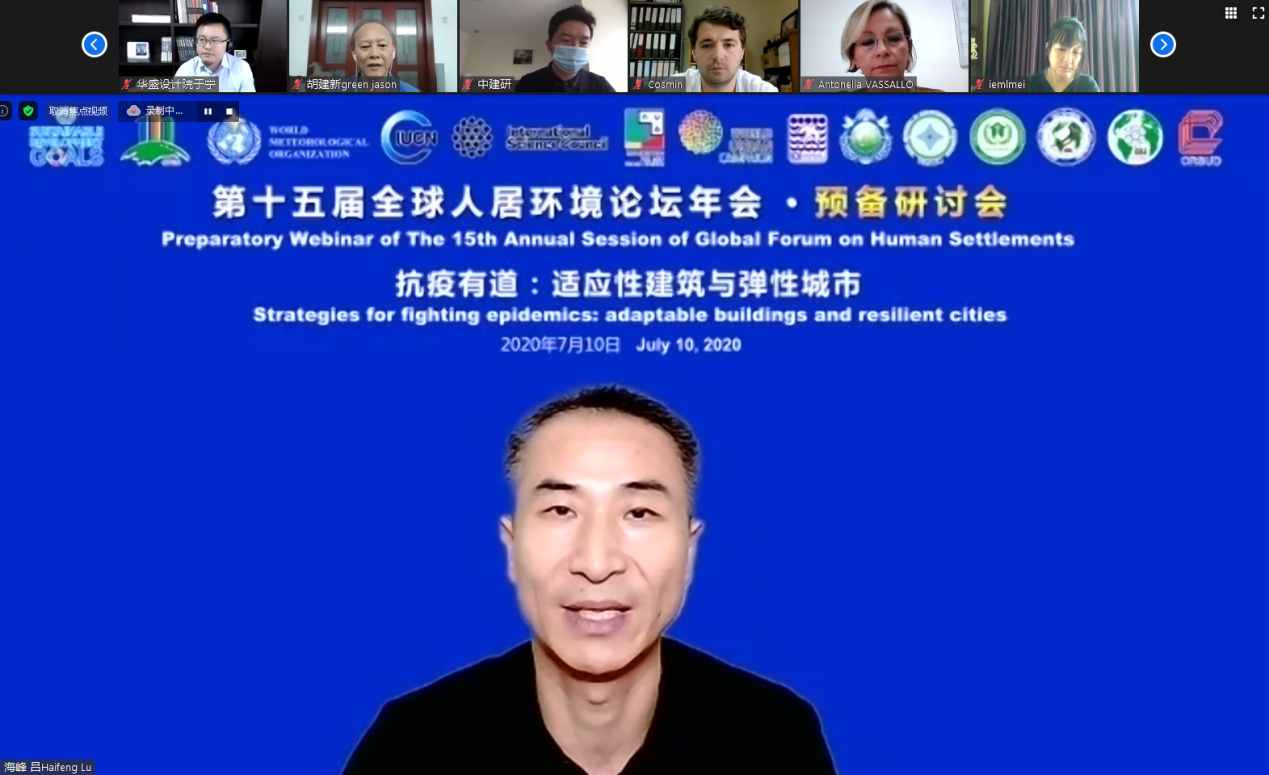
Lu Haifeng, Secretary General of Global Forum on Human Settlements
moderated the session
Prof. Jürg Luterbacher, Director, Science & Innovation, and Chief Scientist, World Meteorological Organization delivered an opening speech on behalf of the organizers, pointing out that knowledge and experience from the past can help us to better respond on current challenges with in cities. Significant advances in high spatio-temporal resolution of observation and prediction allow the development of Integrated Urban Hydrometeorological, Climate and Environmental Services that meet the needs and requirements of cities. Dr. Awni Behnam, former Assistant Secretary-General of the United Nations, honorary president of the International Ocean Institute made an inspiring concluding remark, emphasizing the sustainable development of coastal cities, and calling for the establishment of diversified financing mechanisms and multilateral cooperation to meet the challenges posed by the sea level rise that is reaching the tipping point.
|
|
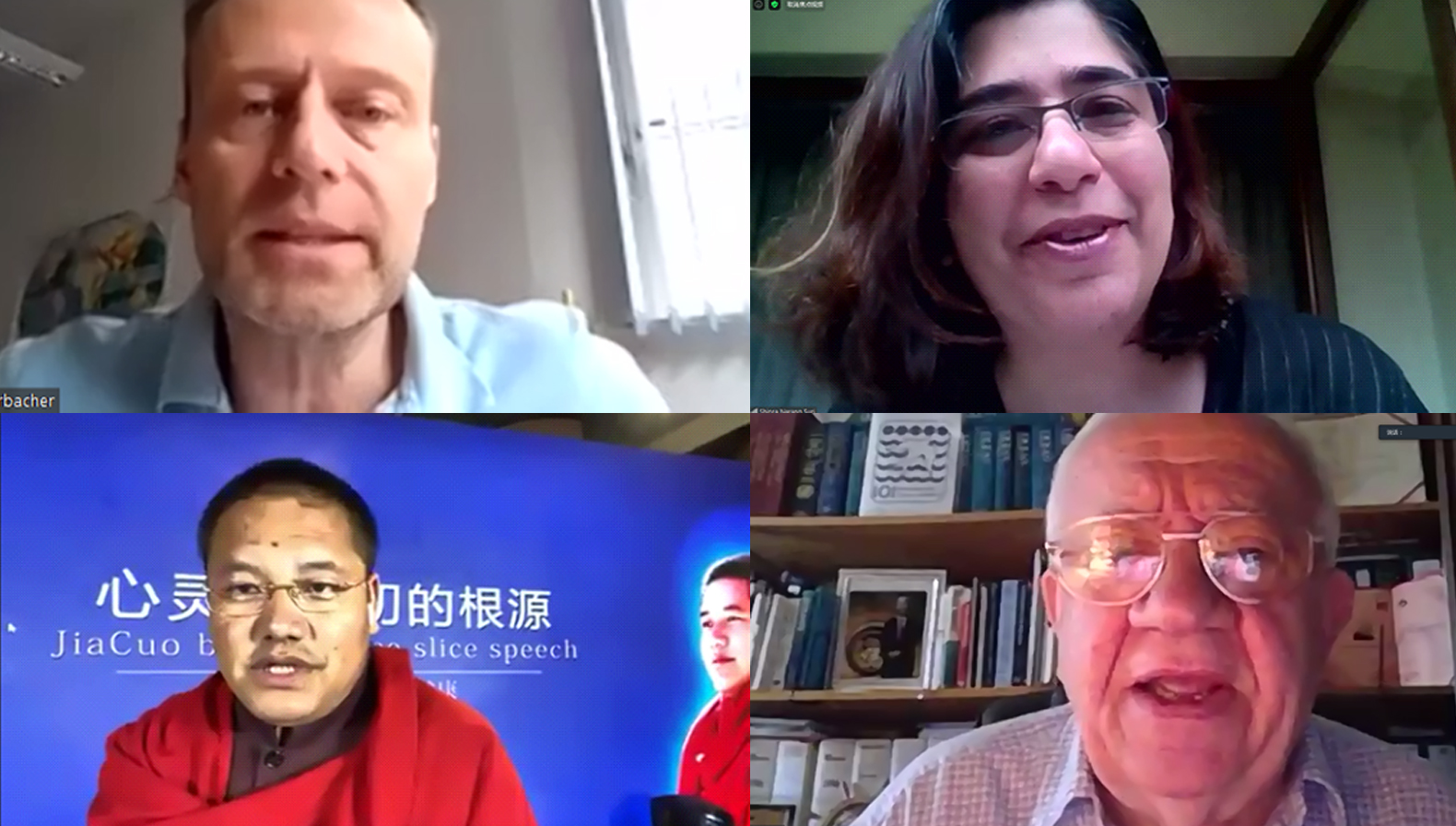
Distinguished speakers: Prof. Jürg Luterbacher, Dr.
Shipra Narang Suri,
Living Buddha Jiacuo, Dr. Awni Behnam
The webinar was also attended by Dr. Shipra Narang Suri, Chief, Urban Practices Branch, Global Solutions Division, UN-Habitat; Xu Ronglie, former chief engineer of the Ministry of Construction, China; Serge Salat, Member of International Resource Panel, UN Environment and President of Urban Morphology and Complex Systems Institute, Paris, France; Mick Pearce, well-known architect and biomimicry expert; Nils Larsson, Executive Director of International Initiative for a Sustainable Built Environment and Fellow of the Royal Architectural Institute of Canada; Living Buddha Jiacuo, Spiritual Leader, Initiator of Charity Fund under China Population Welfare Foundation, Celebrated Advocate of Family Buddhism and Green Lifestyle; Jason Hu, Adjunct Professor at Tsinghua Shenzhen International Graduate School and former Chief Sustainability Officer at China Merchants Shekou Holdings; Zhang Jianguo, Deputy Director, Administrative Committee of Sino-German Ecopark, and many other representatives from the scientific research institutions, local governments, well-known enterprises and civil society organizations.
Confronting challenges in epidemic prevention and control, as well as the increasing impact of climate change, diversified business models and platforms such as home office, online business, education and life services, are emerging and getting increasingly popular. In this context, how do buildings, communities and urban spaces and functions adapt to the needs of citizens and markets? What changes will occur? How can buildings and cities be safer, more resilient, and more sustainable? What interventions can be put in place in these areas? These are issues of general concern to the international community and citizens. The experts at the webinar put forward practical suggestions and solutions in this regard.
|
|
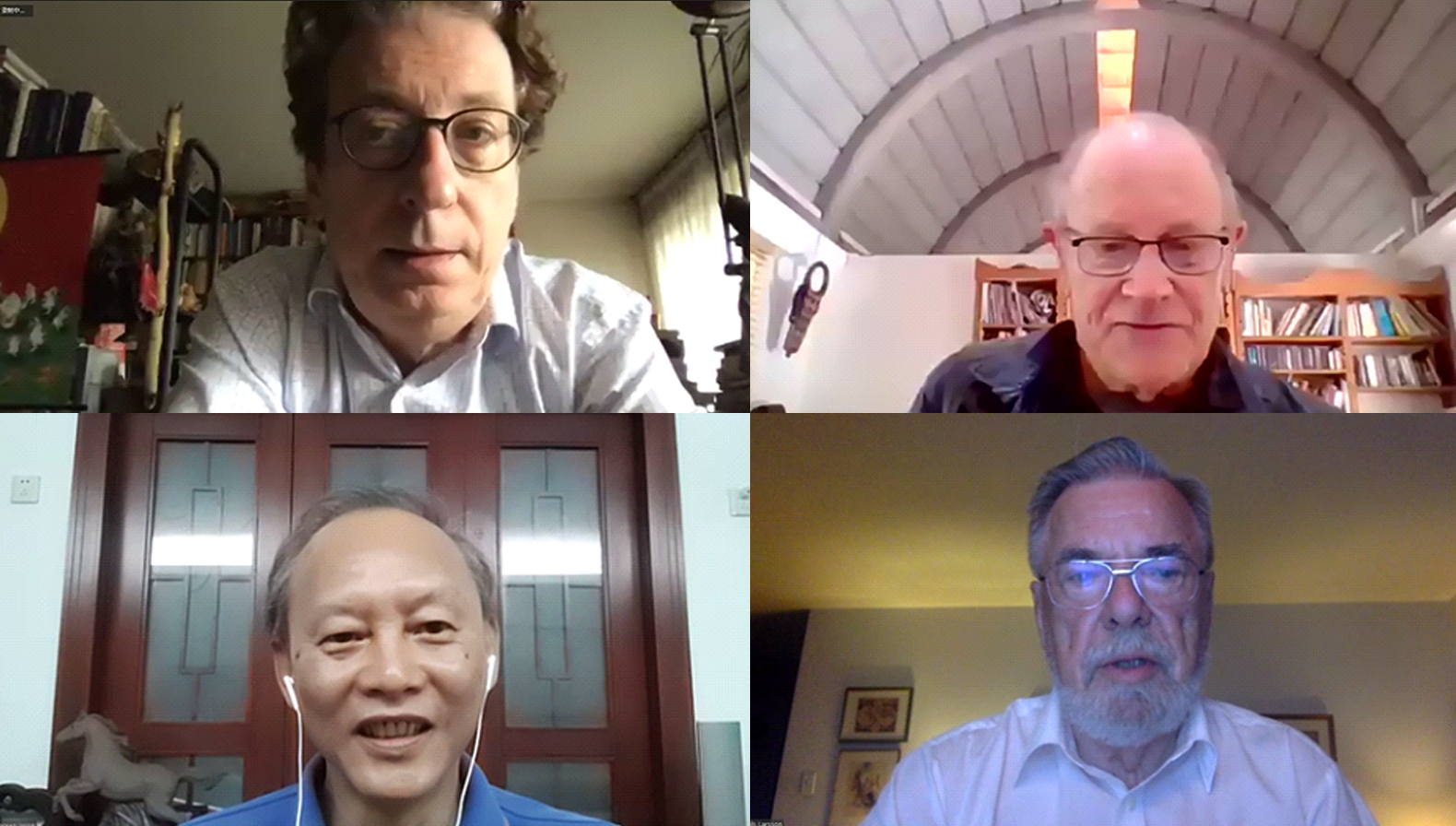
Panelists:
Serge Salat, Mick Pearce, Hu Jianxin, Nils Larsson
Serge Salat indicated that the post-crisis recovery will accelerate the digital transformation of our cities with more smartness, more IA and robotics in factories, with the agenda of autonomous electric vehicles being accelerated. Building back better a more resilient urban future requires integrated approaches to urban planning, design and management, building upon the digital revolution accelerated by Covid-19, to create better neighbourhoods. Investing massively in liveability, in smart management of cities, in digital connective infrastructure will be the new driver of growth. “Optimism is true moral courage.” Optimism and courage: these are the qualities we need to shape a next normal that will create a better future.
Mick Pearce pointed out that the nano-scale object called COVID-19 which stopped the human circus on this planet must be a warning of nature’s power. Like it or not, we have to face the new normal. At the scale of urban and architectural design, we must aim for adaptive structures which themselves could copy the processes in nature if they are to become resilient to catastrophic unknown changes. He also recommended transforming vacant or inefficient office buildings in the city center into residential or other uses to improve the efficiency and value of buildings.
Hu Jianxin shared that Covid-19 urges people to rethink what kind of buildings, residential areas and lifestyles do we need? He recommended that China's 14th Five-Year Plan emphasize the integration between 5G construction and the renovation of human settlements, thus building smart and healthy communities that adapt to epidemic and non-epidemic conditions. He also stressed the importance of research on zero emission buildings. For example, an ecologic cycle can be created by connecting domestic waste recycling with ecological agriculture, which can support agriculture in carbon sequestration and improve the soil for producing organic food.
Nils Larsson emphasized
that we should be taking integrated approaches to ensure that our urban environments
will support the health and economic prosperity of the urban populace. We have
to assess health risks in existing buildings and launch renovation programs to
bring them up to current standards. This can be done concurrently with
improving their energy, environmental and functional performance. Renovation
and performance upgrades should therefore be clear priority from perspectives
of climate change action, the integrity of the urban environment, and green
growth.
|
|
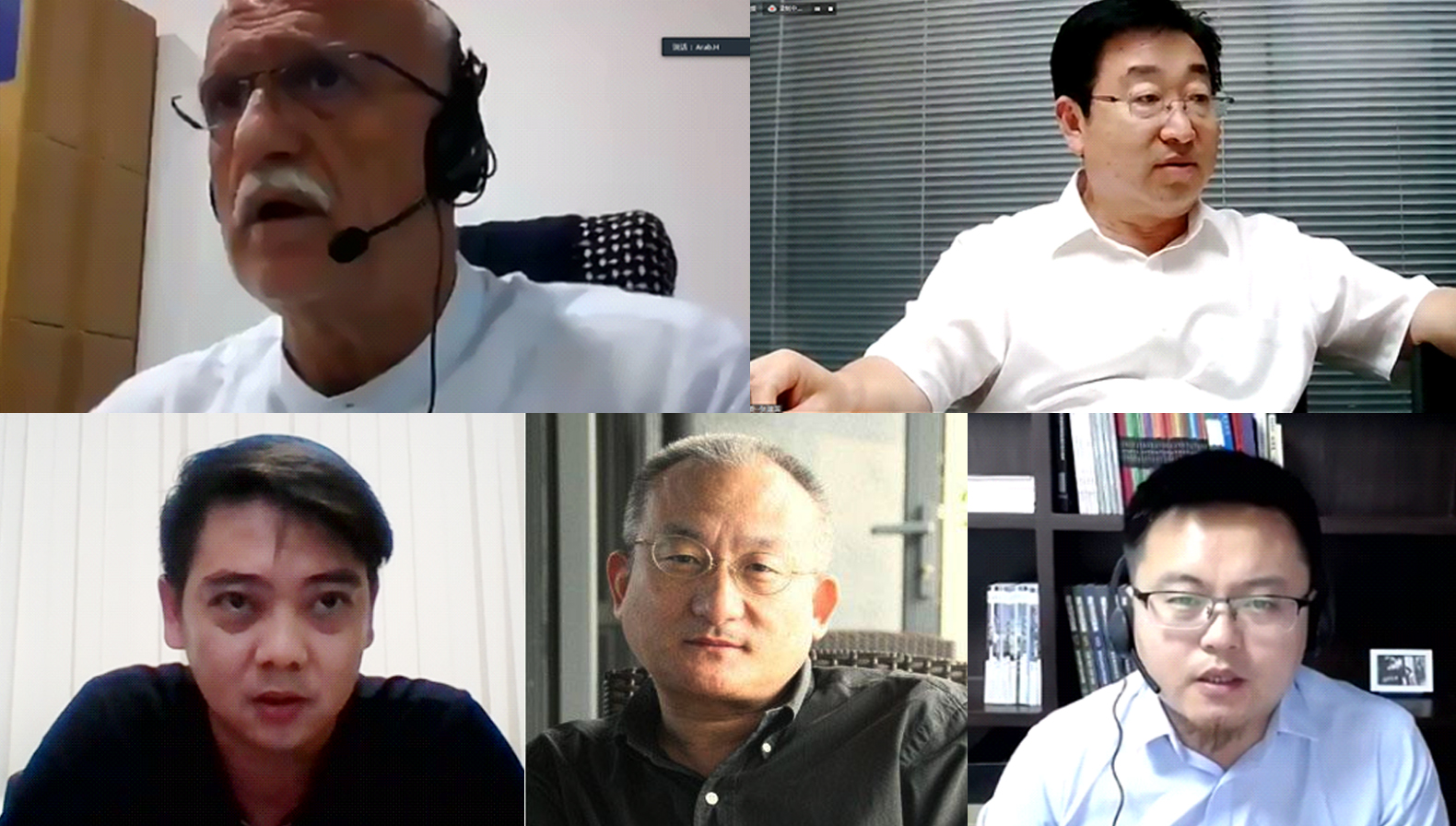
Commentators: Arab Hoballah, Zhang
Jianguo, Jiang Nanbin, Xu Ning, Yu Ning
The webinar that is considered timely, inclusive, interactive and constructive, offered an in-depth look at, from the perspective of planning, design, operation and management, how buildings and cities can improve their safety, flexibility, adaptability, resilience and sustainability, so as to achieve the goal of meaningful transformation and revitalization in all shocks and crises. The webinar also inspired practical solutions and actions in support of better recovery and changes towards sustainable development. Furthermore, the fruitful webinar heralds the success of the 15th Annual Session of Global Forum on Human Settlements, to be held from October 15 to 16.
(Contributed by the Department of Public Information, Global Forum on Human Settlements)
Copyright © Global Forum on Human Settlements (GFHS)
